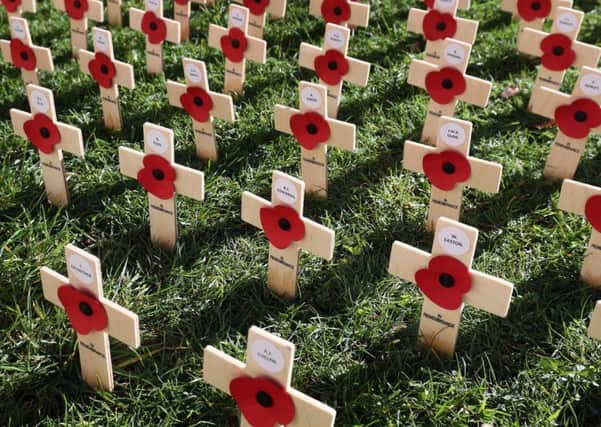Armistice 100: Not Coming Home, a poem by Ian McMillan


NOT COMING HOME
So many marched out, so few came back.
So many walked away, so few return.
Over this Yorkshire street the sky is black
In these Yorkshire minds the memories burn
Of the lad from the farm
And the boy from the mill
And how they came to harm
On that blood-soaked hill
And the kid from the shop
And the mate from school
Flung over the top
Into that mud-filled pool.
Far from the Dales
And the Yorkshire breeze
Where a high cloud sails
Over Yorkshire trees.
The ones who came home think of them
And how they won’t come home again.
They think of those and so do I
Who wave from History’s long goodbye
The men who marched out full of hope
Now dangling from History’s rope
Who fade into History’s swirling mist
Who turned their cheek for History’s kiss.
Remember them this Armistice.
War of silent words
This Armistice weekend I always think about my dad, who died at the start of this century and who, while ever he was able, led the parade through Darfield on Armistice Sunday, his medals gleaming in the sun. He joined the Royal Navy in 1937 and served all through the Second World War, on boats tossed about in the heavy seas of history.
And I think about my grandad, his dad, who served in a Scottish machine gun regiment in the First World War and who survived despite being gassed but who, according to my dad, never talked about it, just like my dad hardly talked about his war. He certainly never wrote a poem about it.
Advertisement
Hide AdAdvertisement
Hide AdAnd now, a hundred years after the end of the First World War, I start to think about how I might have written about it if I’d been involved. I marvel at the ability of writers like Wilfred Owen and Ivor Gurney to capture, albeit imperfectly, the sensation of what it would have been like to be in the hell hole of the front line.
I try to imagine myself at the age of 18, conscripted into a war they told me would be over by Christmas, with my notebook of half-written poems stuffed into my knapsack. At 18 I was, like any book-obsessed young man or woman, convinced that I was going to take the poetry world by storm and indeed I’d already had some verses published in the school magazine. Mainly because I was on the editorial committee.
Young poets like me often take time to rub against the world and, as they say, “find their voice”. You drift around the world meeting people and talking to them and going to new places and reading books and standing up in whatever public forums are available to make stumbling efforts to read your poems aloud, whilst simultaneously wiping the sweat from your brow. In other words, if you’re lucky, you can have a long apprenticeship towards becoming a poet.
This wasn’t available to those hopeful bards who stumbled into the mud of the First World War; they drifted up and down the trenches meeting people by shooting at them or ducking their bullets. The new places they went to were ruins or field hospitals with walls made of pain and screaming. And if those young poets stood up to read their drafts aloud it may not have been sweat they were wiping from their brow.
Advertisement
Hide AdAdvertisement
Hide AdI think the poet in me might have been silenced by the experience of being on the Western Front. And I guess that many other notebooks would have remained blank.
So, alongside the First World War poets that we all think about on this momentous Armistice, let’s spare a thought for the people full of promise who never wrote a thing, who were silenced by the guns and the fear. The poets who never were, the poets who could have been, and let’s remember them by writing poetry ourselves.
